
President’s letter
2020 Metrics
Cycle of Translation
Visionary Gifts

Discovery to Clinic

Innovative Education

Translational Luminaries
Introduction
The Ann Kimbell and John W. Johnson Center for Cellular Therapeutics
The Fondren Food & Health Alliance and The Fondren Inflammation Center
Cockrell Center for Advanced Therapeutics
Paula and Joseph C. “Rusty” Walter III Translational Research Initiative
Jerold B. Katz Academy of Translational Research
result
Outcomes Research
Precision Medicine
CPRIT Funding to Drive New Discoveries in Cancer Therapeutics
Siemens Healthineers and Houston Methodist Imaging Innovation Hub Empowers Researchers to Push the Boundaries
Novel Monoclonal Antibody Treatment Halts Tumor Growth in Deadly Ovarian and Pancreatic Cancers
Houston Methodist Institute for Technology, Innovation & Education (MITIESM)
Can Devices Provide A New Treatment Option for Glioblastoma?
Houston Methodist Hospital’s new Paula and Joseph C. “Rusty” Walter III Tower offers the Most advanced treatments and innovations available
Neuroimaging Offers New Insights into Neurodegeneration
COVID-19 Studies
Restorative Medicine
Houston Methodist and Rice University Launch Center for Translational Neural Prosthetics and Interfaces
Non-invasive Spinal Stimulation Enables Paralyzed People to Stand Unassisted
Dissolvable Implants Enhance the Body’s Ability to Heal Broken Bones
Cell Encapsulation May Hold the Key to Preventing Cell Transplant Rejection
Revolutionizing the Future of Complex Valve Disease Management



Science in Service
of
Medicineresult
President's letter
2020 Metrics
Cycle of Translation
Visionary Gifts of Hope


Introduction

The Ann Kimbell and John W. Johnson Center for Cellular Therapeutics

The Fondren Food & Health Alliance and The Fondren Inflammation Center

Cockrell Center for Advanced Therapeutics

Paula and Joseph C. “Rusty” Walter III Translational Research Initiative

Jerold B. Katz Academy of Translational Research

From Discovery to Clinic


Introduction

Restorative Medicine


Houston Methodist and Rice University Launch Center for Translational Neural Prosthetics and Interfaces

Non-invasive Spinal Stimulation Enables Paralyzed People to Stand Unassisted

Dissolvable Implants Enhance the Body’s Ability to Heal Broken Bones

Cell Encapsulation May Hold the Key to Preventing Cell Transplant Rejection

Revolutionizing the Future of Complex Valve Disease Management

Precision Medicine


CPRIT Funding to Drive New Discoveries in Cancer Therapeutics


An Innovative New Tool to Enable Drug Discovery and Personalized Medicine


Devising a Novel Combination Treatment for Aggressive Double-hit Lymphoma



Expanding the RNAcore to Encompass the Entire Cycle of a Cure


Siemens Healthineers and Houston Methodist Imaging Innovation Hub Empowers Researchers to Push the Boundaries

Novel Monoclonal Antibody Treatment Halts Tumor Growth in Deadly Ovarian and Pancreatic Cancers

Houston Methodist Institute for Technology, Innovation & Education (MITIESM)


Surgical Technology Developed in MITIE Gains FDA Approval


Pushing the Frontier of the Robotics Revolution

Can Devices Provide A New Treatment Option for Glioblastoma?

Houston Methodist Hospital’s new Paula and Joseph C. “Rusty” Walter III Tower offers the Most advanced treatments and innovations available

Neuroimaging Offers New Insights into Neurodegeneration

Translational Luminaries

Visionary Gifts of Hope
01
The Ann Kimball and John W. Johnson Center for Cellular Therapeutics
02
The Fondren Food & Health Alliance and The Fondren Inflammation Center
03
Cockrell Center for Advanced Therapeutics
04
Paula and Joseph C. “Rusty” Walter III Translational Research Initiative
05
Jerold B. Katz Academy of Translational Research
Ushering medical breakthroughs from the lab to the clinic takes many years and millions of dollars. Most promising discoveries are lost in the phase of translation called the “valley of death”. To help bridge the valley of death and to provide our most promising innovations a lifeline, Houston Methodist is drawing on the transformative power of philanthropy.
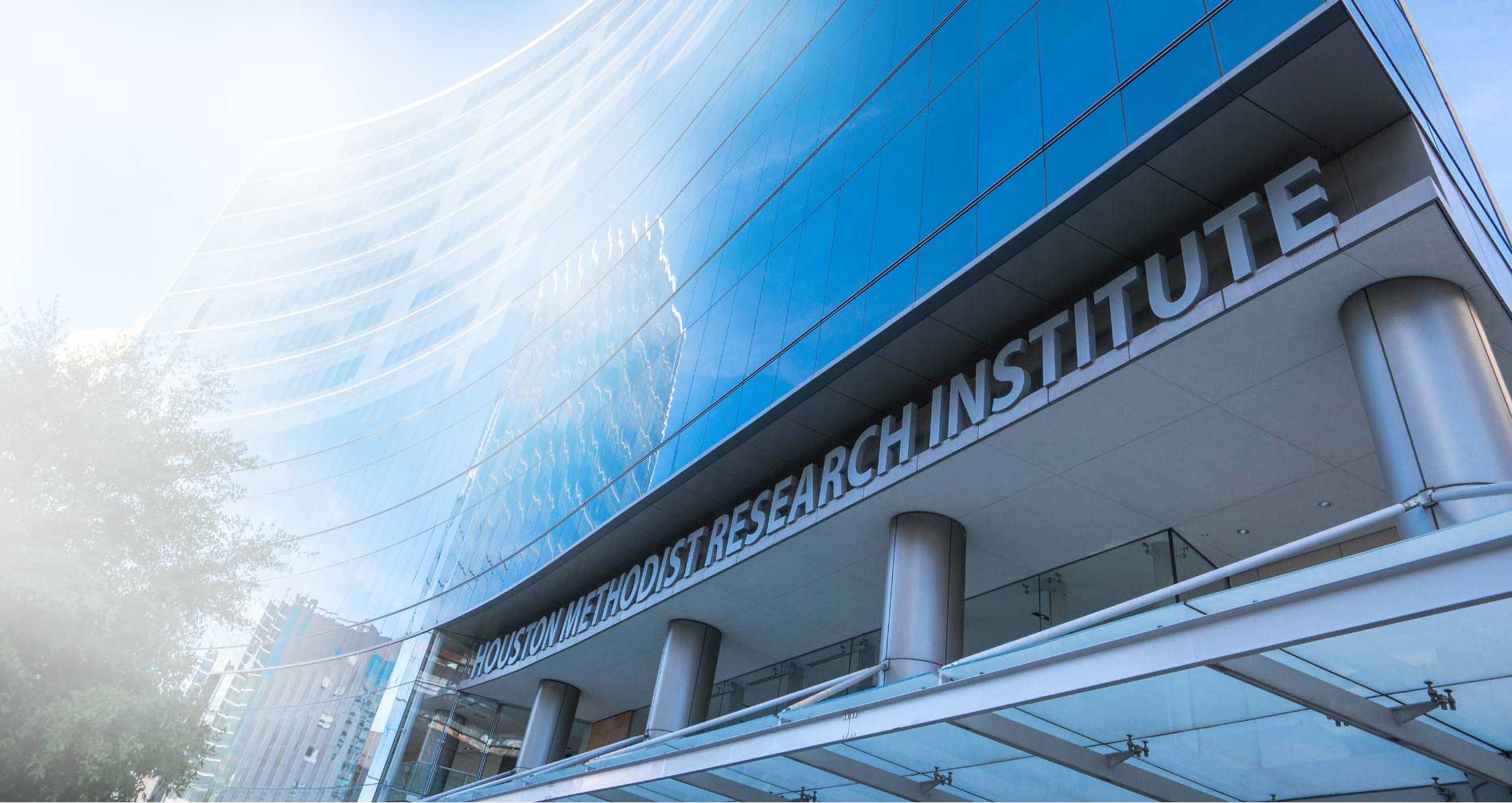
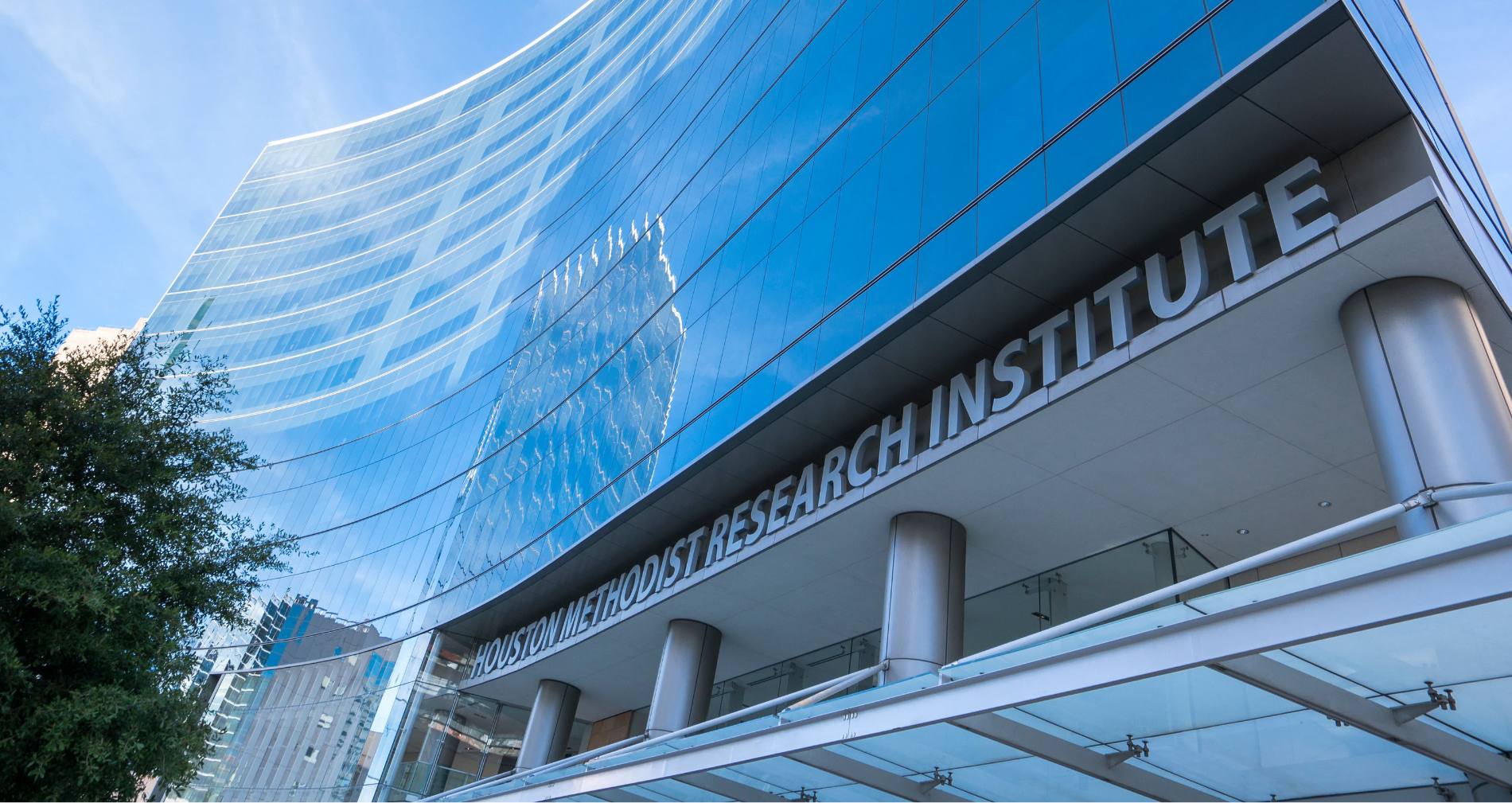
01
The Ann Kimball and John W. Johnson Center for Cellular Therapeutics
With generous support from Ann Kimball and John W. “Johnny” Johnson, Houston Methodist has entered a new era of cellular therapeutics that will expand our growing portfolio of immunotherapeutics and RNA therapeutics. Their cornerstone commitment will build a research program and production facility at Houston Methodist that will allow us to design new therapies rapidly and produce experimental therapeutics on-site. The 5,000 square-foot, state-of-the-art Current Good Manufacturing Practice (cGMP) facility is located in the Houston Methodist Outpatient Center and will open in 2021.
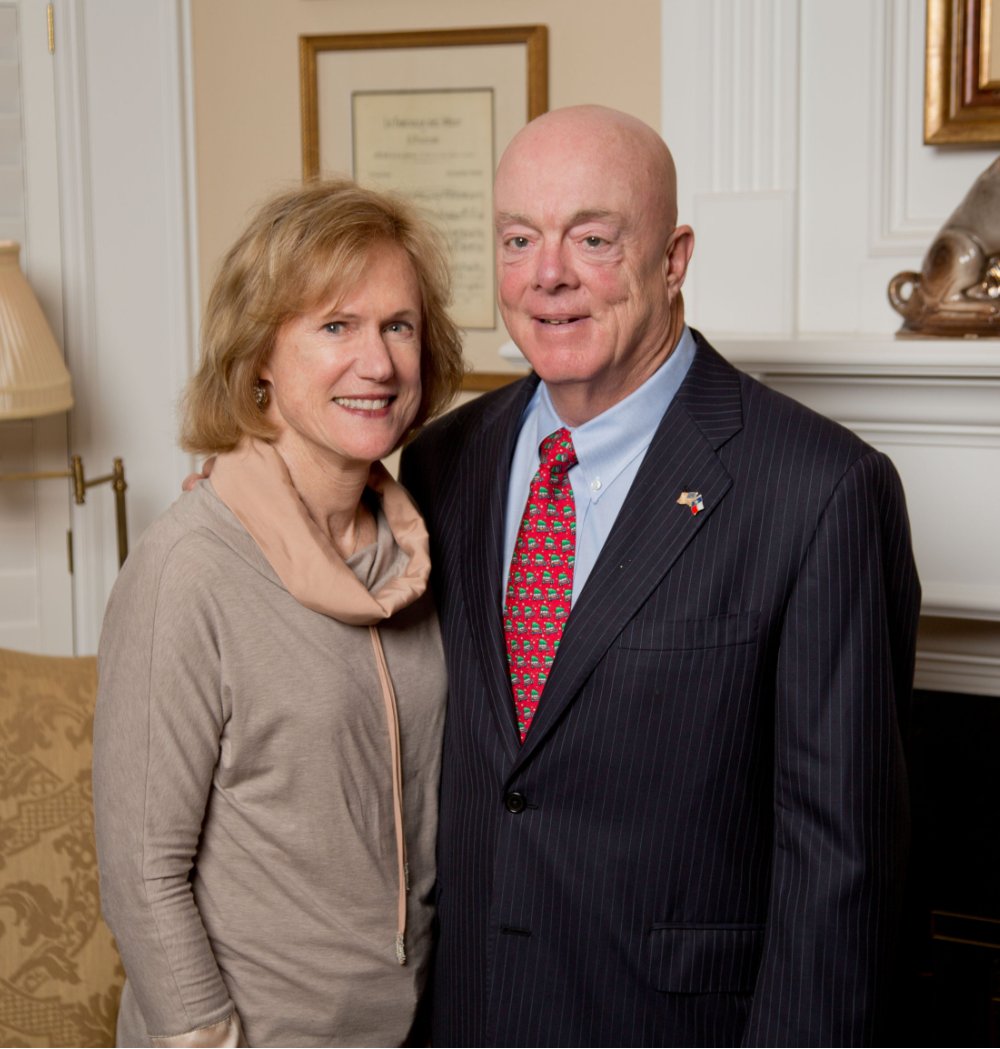
Stanley H. Appel, MD, the Peggy and Gary Edwards Distinguished Chair in ALS Research, Stanley H. Appel Department of Neurology, will lead a multidisciplinary team of researchers dedicated to expanding cell therapy research at Houston Methodist. His regulatory T cell therapy for amyotrophic lateral sclerosis, or ALS, is demonstrating promising results in slowing disease progression in some patients. Appel’s cell therapy for ALS will be manufactured on-site as part of the cell therapy program at the Ann Kimball and John W. Johnson Center for Cellular Therapeutics.
02
The Fondren Food & Health Alliance and The Fondren Inflammation Center
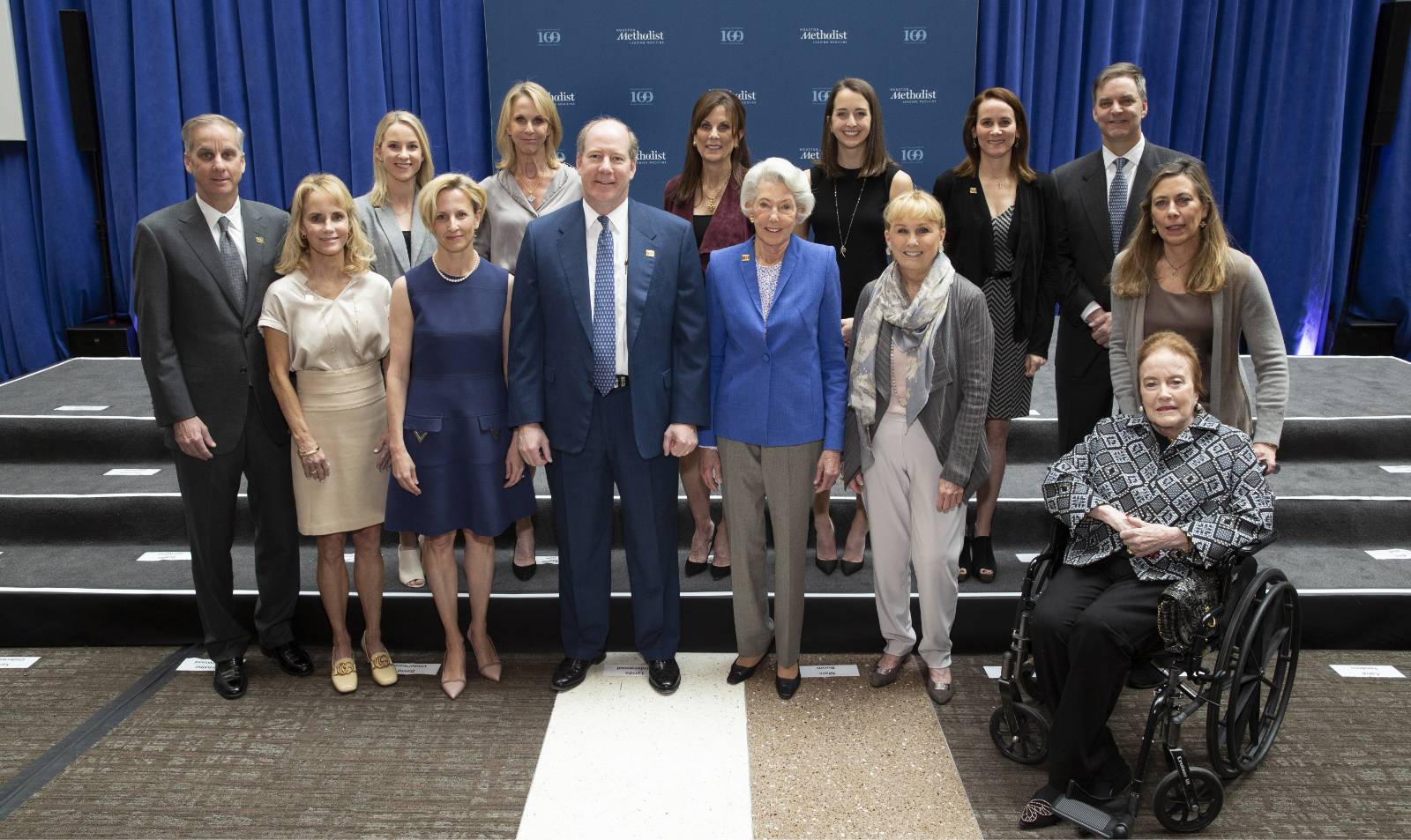
The first of its kind in the Texas Medical Center, Houston and the region, the Fondren Inflammation Collaborative is creating a singular destination for patients to seek normalcy and relief from debilitating allergy, immunologic, autoimmune and gastrointestinal conditions. The program was made possible when The Fondren Foundation made a generous $15 million commitment to Houston Methodist. The entire program will be realized in the next decade, helping patientsFondren Foundation who often get passed between doctors and clinics for months or years in search of a proper diagnosis and treatment plan.
The philanthropic gift strengthens and expands two Houston Methodist programs: the new Immunology Center at Houston Methodist and the Food and Health Alliance within the Lynda K. and David M. Underwood Center for Digestive Disorders. The Fondren Inflammation Collaborative will offer patients one-of-a-kind opportunities to participate in clinical trials focused on innovative treatments and therapies for inflammation-triggered conditions.
The Fondren Foundation’s vision is to close the gap in patient care by building an international destination of hope and relief for people with complex, often intertwined conditions that have underlying inflammatory triggers.
Ultimately, the Fondren Inflammation Collaborative will be extended to other disease areas impacted by inflammation, such as the heart, brain, cancer and behavioral health. The gift also will fund four endowed chairs to recruit and retain the best minds in the world, while supporting research, education and training efforts.
03
Cockrell Center for Advanced Therapeutics
Since 2009, the Cockrell Foundation has made a generous gift toward an endowment that supports the Cockrell Center for Advanced Therapeutics (CCAT), which opened its Phase I clinical trials unit in 2015. The CCAT and Houston Methodist have the expertise to support all phases of clinical trials, beginning with first-in-human trials. The CCAT brings together world-class medical minds and first-class facilities to study novel therapies for various medical conditions, while delivering customized and compassionate care. As part of our deep commitment to developing treatments with ready applicability to human disease, we aim to make a clinical trial available to every person who needs and wants to participate in one. All stages of clinical research operations are supported, and the experts to support all phases of clinical trials are on hand.
Houston Methodist Opens New Facility for Clinical Trials
The Houston Methodist Cockrell Center for Advanced Therapeutics supports all phases of clinical research operations. The center provides more than 7,000 square feet of dedicated space across six locations in the greater Houston area, bringing access to the latest investigational treatment options closer to study participants’ homes or workplaces.
The center conducts 24-hour pharmacodynamics and pharmacokinetics evaluations, offers early phase and investigator-initiated trial support services, and provides a centralized clinical trials support office. The Clinical Research Phase 1 Unit caters to early-phase and proof-of-concept clinical trials as well as precision medicine-focused translational research projects.
As the COVID-19 pandemic took hold across the U.S., the center’s resources and expertise played a critical role in the historic efforts to rapidly activate and conduct clinical trials to evaluate potential therapies for COVID-19. The pandemic also underscored the need for dedicated facilities within the center to support infectious disease clinical trials that require specialized services, equipment, training and protocols. This facility is equipped to facilitate outpatient infectious diseases trials and study-mandated follow-up and data collection after discharge.
Pandemic propels need to develop a component of CCAT to administer clinical trials for Infectious Diseases
Houston Methodist is fortunate to find itself in the very good position of having donors who believe in its mission and wish to provide support. One such donor is Reynolds and Reynolds, an automotive retailing company. Through a personal relationship with Ernest D. Cockrell, II, Reynolds and Reynolds gave a total of $2 million to Houston Methodist, with half of that amount earmarked for the Reynolds and Reynolds Company Infectious Disease Research Unit, a part of the Cockrell Center for Advanced Therapeutics (CCAT), that is housed in the Research Institute. The other half is earmarked for outcomes research.
The pandemic made the need to develop a component of CCAT to administer clinical trials for Infectious Diseases, beginning with COVID-19 patients, even more urgent. The trials require specialized facilities, equipment, training and protocols. This initiative is a component of Houston Methodist’s overall strategy to lead medicine in the prevention and treatment of infectious diseases, which ultimately will lead to the establishment of the Infectious Diseases Center of Excellence.
Beyond COVID-19, Houston Methodist will continue with clinical trials under CCAT for the Cancer Center of Excellence, Center for Outcomes Research, Pathology and Genomic Medicine, and several others. The Reynolds and Reynolds Company Unit will enable us to conduct clinical research in infectious disease, that we otherwise would be unable to participate in, for the benefit of the Houston community.
Cockrell Centers for Advanced Therapeutics
1
Houston Methodist Research Institute
Ccat - Tmc
Clinical Research Phase 1 Unit - Tmc Reynolds Outpatient Trials Center
2
Houston Methodist Sugar Land Hospital
3
Houston Methodist West Hospital
4
Houston Methodist Continuing Care Hospital
Highly Infectious Disease Unit Clinical Trials Center
5
Houston Methodist Pearland Primary Care Group
6
Houston Methodist The Woodlands Hospital
Pinch to zoom image
04
Paula and Joseph C. “Rusty” Walter III
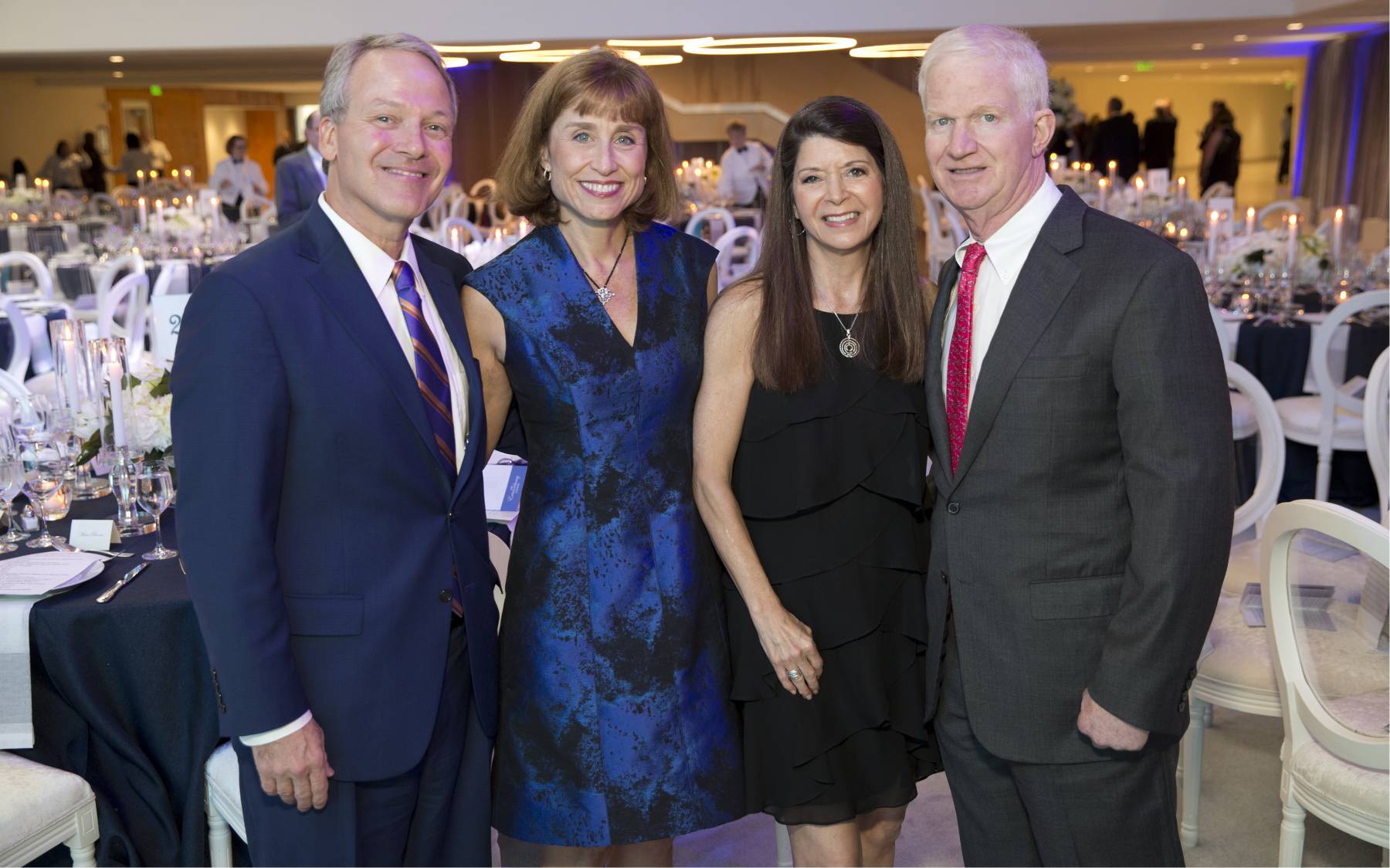
Translational Research Initiative
When Houston Methodist launched the Translational Research Initiative (TRI) in 2014, the aim was twofold: provide vital funding to promising new therapies ready to make the transition from research laboratory to clinical use and capitalize on Houston’s bold entrepreneurial spirit to lead the way toward a new model of medical innovation.
Houston Methodist Walter Tower
Anatomicaligner
Developed by James Xia, MD, PhD, professor of oral and maxillofacial surgery, and Jaime Gateno, DDS, MD, chair of the Department of Oral & Maxillofacial Surgery and professor of oral and maxillofacial surgery, FDA-approved software program, AnatomicAligner uses information acquired from multiple imaging modalities to simulate jaw surgery. Due to the complex nature of the craniofacial skeleton, corrective surgeries require extensive presurgical planning. The use of state-of-the-art computer graphics and modeling in AnatomicAligner will help reduce unwanted surgical outcomes and procedures.
1
Before surgery, Lindsay’s bone structure was not symmetrical.
2
AnatomicAligner software calculated which adjustments were needed to achieve symmetry.
3
After two extensive surgeries, Lindsay wore braces for several weeks. With newfound confidence, she began her career at a large corporation.
Magnetic Cap
A non-invasive, portable, wireless, affordable, smartphone-compatible magnetic stimulation cap invented by Santosh Helekar, MD, PhD, associate professor of neurosurgery at Houston Methodist and Henning Voss, PhD, associate professor of physics in radiology at Weill Cornell Medical College, uses novel transcranial stimulation technology to modulate neural activity in multiple parts of the brain at the same time, leading to functional recovery following brain injury or dysfunction.
When David Chiu, MD, Elizabeth Blanton Wareing Chair in the Eddy Scurlock Stroke Center and Helekar tested the device in a Phase 1/2a clinical trial involving 30 ischemic stroke survivors with motor impairment, the cap increased neural activity near stroke-injured areas of the brain, inducing a trend toward recovery of motor function. The cap is also being tested for other applications, such as improvement of bladder control in multiple sclerosis.
The cap technology has been granted four patents by the U.S. Patent and Trademark Office so far, which have been licensed to a startup company called Seraya Medical LLC. A larger multicenter stroke trial and submission for regulatory clearance are being planned.
05
Jerold B. Katz Academy of Translational Research
A substantial commitment from the Jerold B. Katz Foundation established the Jerold B. Katz Academy of Translational Research, which aims to recruit and retain the world’s most promising transformational researchers in health care. According to Evan H. Katz, one of Jerold B. Katz’s sons and the president of the Jerold B. Katz Foundation, the gift is designed to continually seed innovation and facilitate the discovery of improved treatments and medications. A portion of this gift is intended to support the research efforts of eight investigators, of whom three have been announced.
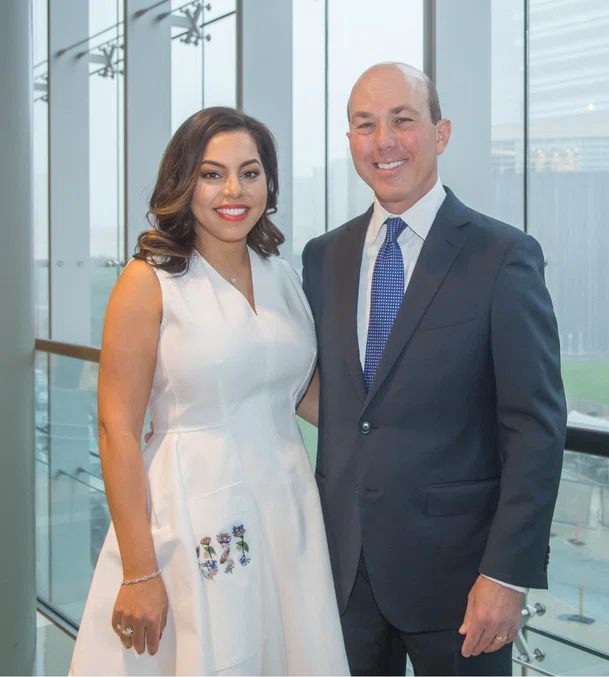
KATZ INVESTIGATORS
Nestor Esnaola, MD, MPH, MBA, FACS
Esnaola is the associate director of Cancer Control and Population Science in the Cancer Center, professor of surgery and division head of surgical oncology in the Department of Surgery. He works closely with Cancer Center Director Jenny Chang, MD, to drive efforts in the areas of cancer prevention, community outreach and engagement, cancer health disparities and population science research. He was awarded Katz Foundation funding to evaluate a patient navigation intervention tool intended to optimize breast cancer care and address outcome disparities in minority and underserved women. The tool will be tested in a large-scale, community-based, randomized clinical trial.
Khurram Nasir, MD, MPH
Nasir is a Professor of Cardiology, chief of the Division of Cardiovascular Prevention and Wellness in the DeBakey Heart & Vascular Center and co-director of the Center for Outcomes Research. Nasir was awarded the Katz investigator endowment to support his efforts to develop a systemwide hospital resource for research in the area of cardiovascular disease prevention. This platform will harness the power of big data, innovative computation paradigms and artificial machine intelligence to integrate clinical and research data of patients with cardiovascular disease. By leveraging dashboards and digital solutions like alert systems and automatic prescriptions, Nasir aims to identify gaps in preventative care among high-risk individuals.
Trisha Roy, MD, PhD
Katz investigator and vascular surgeon-scientist Roy is researching advanced imaging options to improve procedural outcomes for peripheral arterial disease. Current imaging techniques fall short at accurately characterizing arterial lesions, which leads to a “one-size-fits-all” approach to treatment. Roy is developing a peripheral arterial MRI (magnetic resonance imaging) method for evaluating blood vessel blockages that will allow surgeons to precisely tailor surgeries and endovascular procedures to individual patients. By selecting the right treatment for the right patient, Roy hopes to reduce failure rates and make these treatments more successful.













